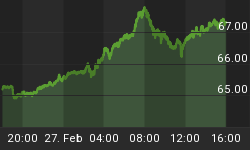Capital One, the bank lately dominating the celebrity-featured advertising space in this industry, and claiming to have “reimagined” banking, has now been fined by the authorities for ‘willful’ anti-money-laundering failures--for the second time in six months.
The Treasury Department's Financial Crimes Enforcement Network (FinCEN) fined America’s fifth-largest credit card issuer $390 million for engaging in willful and negligent violations of the Bank Secrecy Act, an anti-money laundering law.
FinCEN said in a statement that Capital One admitted that it failed to file "thousands of suspicious activity reports" and "thousands of Currency Transaction Reports" with respect to a business unit known as the Check Cashing Group
“The violations occurred from at least 2008 through 2014 and caused millions of dollars in suspicious transactions to go unreported in a timely and accurate manner,” FinCEN added.
Capital One acquired the check-cashing group when it bought New York-based North Fork Bank in 2006 for $14.6 billion and shut it down 8 years later.
Capital One admitted that it did not file any reports of suspicious activity in connection with Domenick Pucillo, who owned numerous check-cashing businesses in the New York area but was also a convicted member of the Genoese organized crime family.
FinCEN said that despite being informed about Pucillo’s association with criminal activity in 2013, the bank continued to process over 20,000 transactions valued at approximately $160 million.
Still, this wasn’t Capital One’s lone case of wrongdoing, nor is this bank the only offender.
Last August, the bank was fined $80 million by the U.S. Treasury Department for careless network security practices after a lone hacker accessed the personal data of the bank’s more than 100 million customers. The incident is still the biggest data breach ever in the financial services sector.
A 33-year-old software engineer in Seattle, Paige Thompson, hacked into a server holding customer information for Capital One and gained access to 140,000 Social Security numbers, 1 million Canadian Social Insurance numbers and 80,000 bank account numbers.
Even though the Social Security numbers were not affected, the breach did include names, addresses, ZIP codes, phone numbers, email addresses and birthdates of all those who applied for a credit card from the US bank between 2005 through 2019.
Thompson, who pleaded not guilty and is still pending trial, previously worked for Amazon Web Services, which hosted the Capital One database.
In 2018, Bank of America was fined $42 million for misleading its customers into thinking that their stock trades were being done in-house when in reality they were being redirected to third parties.
But it’s also not the first time Bank of America has been fined for violations. Since the 2008 financial crisis, it’s paid $76 billion in fines.
A few years ago, America’s fourth largest bank, Wells Fargo, was fined billions of dollars by the U.S. trade watchdog for charging overdraft fees on millions of unauthorized customer accounts.
In total, banks have been fined $243 billion since the financial crisis, according to a list compiled in 2018 by Keefe, Bruyette and Woods. JPMorgan Chase features second on the list, with nearly $44 billion in fines.
By Michael Kern for Safehaven.com
More Top Reads From Safehaven.com:
















